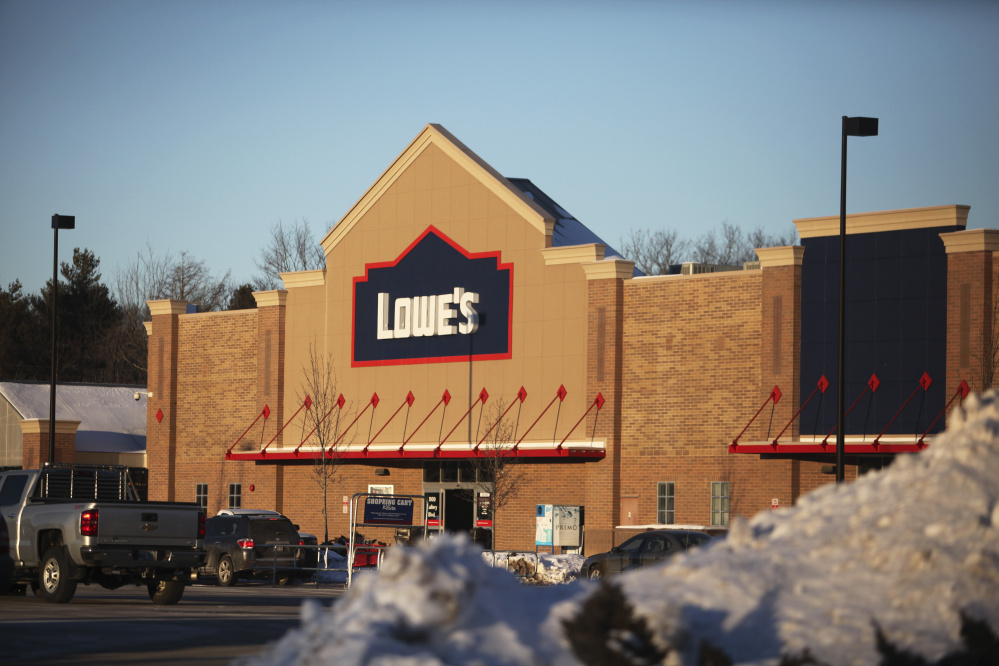The Lowe’s retail chain has filed requests to reduce its property tax assessments on home improvement stores in Portland, Scarborough, Windham and several other Maine communities.
Portland has already denied the request for a nearly $2.6 million reduction in its property assessment, a $53,514 potential drop in its tax bill for the current year, because the deadline for an abatement has passed.
Scarborough’s assessor said Friday he won’t be granting a property tax abatement to Lowe’s unless the company can make a better case about why it should receive one.
Lowe’s filed the requests Tuesday, including one asking to reduce Scarborough’s assessment of its Gallery Boulevard store by $3.9 million – from $12.9 million. That reduction in the assessed property value of the store would result in a $59,000 decrease in its annual tax payments.
In Windham, Lowe’s has requested a reduction in the assessment of its store of Route 302 by $2.8 million. Assessor Elisa Trepanier said the store is currently assessed at about $12 million and paid about $180,000 in taxes last year. If the request is granted, it would save the company about $43,000 in taxes.
She said she’s still in the early stages of assessing the request.
Through its law firm, McCarter & English, the home improvement chain made similar requests in Augusta, Auburn, Bangor, Brewer and Thomaston, according to Lowe’s spokeswoman Karen Cobb. Lowe’s also has stores in Brunswick, Sanford and Presque Isle, but those were not part of the effort to reduce tax assessments.
All of Lowe’s Maine stores were built between 2005 and 2010, Cobb said. The company closed stores in Biddeford and Ellsworth in 2011.
“Lowe’s goes through a process every year to review property tax values for all its properties across the country. Determining market value can be a complicated process, but in general, we look at information about comparable property in the area to help determine an appropriate value. We typically engage independent appraisers to help us verify market values,” Cobb said. “Just like homeowners, we want to be taxed fairly on the value of our buildings and land.”
The company is arguing that the assessments on its properties are too high, based on the sales of stores that have closed and on what the properties would receive in income if they were leased, said Scarborough Assessor Matthew Sturgis.
However, Sturgis believes the sales reflect a lower-than-actual value because of a restriction that they can’t be sold to competitors, such as Home Depot.
He also said the formula the company is using to determine the property’s value based on potential income is skewed to make it worth less and does not reflect how similar properties are valued nationally.
Sturgis, who has 60 days to make a decision on the request, plans first to ask the company for more information, such as its insurance coverage — which would show another figure for building’s worth — any recent appraisals and current operating and expense statements for the Scarborough location.
If the company does not provide that information, he said, it is barred from appealing the assessment further, either to the town’s Board of Assessment Review or the state Board of Property Tax Review.
Sturgis said big-box stores frequently make such requests for tax abatements at locations across the country, and there are lawyers that make a living off of representing them.
“There are those that are real valuation issues and there are those that are trying to use this as a business model,” Sturgis said about different types of abatement requests.
McCarter & English deferred questions to Lowe’s.
Send questions/comments to the editors.




Comments are no longer available on this story